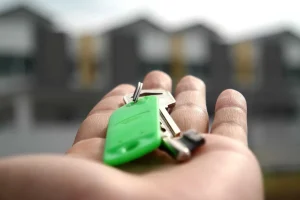
Mastering Daily Money Saving Tips Without Sacrificing Comfort
Let’s be brutally honest. I once tried to save money by living on nothing but lentils and turning off my heating in November. It was miserable. I was cold, perpetually hungry, and frankly, a nightmare to be around. That whole experience taught me a valuable lesson: the goal isn’t just to save money, it’s to build a richer life. And you can’t do that if you’re miserable. So, I threw out the extreme, soul-crushing austerity measures and focused on finding realistic ways to save money every day. It was a complete game-changer. The secret isn’t about deprivation; it’s about optimization. It’s about being smarter, not cheaper. And yes, it is entirely possible to have a comfortable, enjoyable life while also fattening up your savings account. Forget what the hardcore frugalists tell you. You don’t have to suffer.
Shift Your Mindset: The Comfort-First Approach to Saving
The journey begins with a mental shift. Instead of viewing every purchase as a potential saving you missed, think of it as an opportunity for a value judgment. Is this item or service genuinely adding to my comfort and happiness? This question is central to saving money without sacrificing your lifestyle.
It’s not about saying “no” to everything, but about saying a very enthusiastic “yes” to the things that truly matter. This approach helps you effortlessly cut the fluff. You’ll find that many expenses just fall away because they weren’t really serving you in the first place. This mindset transforms saving from a chore into an act of self-care. It’s about curating a life you love, funded by the money you saved on things you didn’t.
Create a Comfortable and Cost-Effective Home
Your home should be your sanctuary, not a financial battleground. The good news is that you can implement some incredibly easy ways to save money at home without feeling like you’re living in a spartan dorm room. It’s all about creating habits that work for you, not against you. A comfortable home is an efficient home. Wasted energy, unused items, and paying for convenience you don’t actually need are the real enemies of your budget, not the occasional takeaway or cozy blanket.
DIY Maintenance to Save Big on Home Repairs
I’m not suggesting you rewire your entire house. Please don’t. But learning some basic DIY can save you an astonishing amount of money. I once got a quote for over two hundred pounds to fix a dripping tap. I was horrified. So, I watched a ten-minute video online, bought a tiny washer for less than a pound, and fixed it myself. The sense of accomplishment was immense, and my wallet was significantly happier. Learning to patch a small hole in the wall, unclog a drain, or bleed a radiator are simple skills that prevent you from paying huge call-out fees for minor issues.
Savvy Shopping for Household Essentials and Supplies
When it comes to household goods, “cheapest” is rarely the best option. I’ve bought cheap bin bags that split open and bargain-bin light bulbs that died in a month. It’s a false economy. Instead, think about “cost per use.” Buying slightly more expensive, concentrated cleaning supplies that last three times as long is a smart move. Stocking up on non-perishables like toilet paper or laundry detergent when they’re on a deep discount saves you from paying full price later. It’s about being an intelligent consumer, not a cheap one.
Eat Well Without Breaking the Bank
Food is one of life’s greatest pleasures, and you should never have to sacrifice it. The idea that saving money on food means eating bland, repetitive meals is a total myth. You absolutely can eat like royalty on a pauper’s budget. It just requires a little bit of planning and a dash of creativity.
Meal Planning Mastery for Your Wallet and Health
Meal planning used to sound like a dreadful chore to me. But the reality is, it’s freedom. It’s the freedom from that 6 PM panic of “what’s for dinner?” which almost always led to an expensive takeaway. Start small. Just plan three dinners for the week. This isn’t just a top money-saving tip; it’s a sanity-saver. You buy only what you need, waste far less food, and generally eat healthier. My food waste dropped by at least 80% when I started planning, and that was a direct saving. There are so many meal prep ideas that save both money and time, from cooking components in batches to simply having a list of ten go-to easy meals.
Smart Grocery Shopping: Avoiding Common Pitfalls
The supermarket is a minefield designed to make you spend more. My golden rule? Never, ever shop hungry. You will buy everything. Beyond that, always shop with a list based on your meal plan. This is one of the most crucial daily habits to save money on groceries. Look at the unit price (price per 100g or per item) to see if that giant “value pack” is actually a good deal. Sometimes it isn’t. Also, don’t be a brand snob. Often, the store’s own brand of a basic item like chopped tomatoes or flour is just as good, if not identical, to the expensive one.
Smarter Travel for a Healthier Budget
The daily commute can be a silent killer of budgets. Fuel, parking, maintenance—it all adds up to a staggering amount over a year. But rethinking how you get from A to B offers a fantastic opportunity for savings. In fact, you might even find you enjoy your journey more. It’s amazing how a simple change here can impact your finances and well-being.
Rethinking Your Daily Ride: Alternatives to Solo Driving
That five-minute drive to the local shop? It costs more than you think in fuel and wear-and-tear. If you’re able, could you walk or cycle instead? It’s free, it’s great exercise, and it gives you a moment to clear your head. Combining errands into one longer trip instead of several short ones is another simple but effective strategy. These are smart spending habits for daily life that pay dividends. The goal isn’t to abandon your car, but to use it more intentionally.
Public Transport and Carpooling Perks for Your Budget
Okay, public transport isn’t always glamorous. But it’s often significantly cheaper than driving and parking in a city centre. Read a book, listen to a podcast, catch up on emails—your travel time can become your “me time.” Carpooling with a colleague is another brilliant option. You can cut your fuel and parking costs in half instantly. It might require a little more coordination, but the savings are well worth the tiny effort.
How to Have More Fun for Less Money
A happy life is not about sitting at home staring at your bank balance. It’s about experiences, joy, and connection. The great news is that so many of life’s best moments cost very little, or nothing at all. Learning to have fun frugally is the ultimate secret weapon. It is absolutely possible to save money and live well.
Free Entertainment Ideas You’ll Love and Enjoy
Become a tourist in your own town. Seriously. Visit local parks, museums on their free-entry days, and check out your local library—they often have free events, workshops, and, of course, endless books and movies. Pack a picnic and go for a hike. Host a potluck dinner or a board game night with friends instead of going out to an expensive restaurant. The options are endless when you start looking for free entertainment.
Affordable Hobbies for Lasting Joy and Personal Growth
Your hobbies shouldn’t require a second mortgage. There are countless fulfilling activities that are incredibly low-cost. Think gardening (which can also save you money on groceries!), learning an instrument with online tutorials, drawing, creative writing, or learning a new language with a free app. These hobbies enrich your life and provide hours of enjoyment without draining your bank account. Pursuing them is one of the most rewarding ways to improve your life while spending less.
Lower Your Energy Bills and Stay Cozy
Utility bills can be a source of major financial stress. But you don’t have to live in a single-jumper-wearing, shivering state to save money. A few smart adjustments can make a huge difference to your utility bills without sacrificing comfort.
Optimizing Your Thermostat for Maximum Savings and Comfort
A programmable thermostat is one of the best investments you can make for your home. It allows you to automatically lower the temperature when you’re out of the house or asleep, without you even having to think about it. You’ll never notice the difference in comfort, but you will definitely notice it on your bill. Even lowering your thermostat by a single degree can cut your heating costs significantly.
Unplugging for a Greener Wallet: Tackling Phantom Power
Those little standby lights on your TV, microwave, and chargers? They’re vampires. They suck a small but constant amount of electricity, often called “phantom power.” It adds up. Get into the habit of switching appliances off at the wall or using power strips that you can turn off completely. It’s a tiny action that feels ridiculously satisfying. This is pure savings with zero impact on your lifestyle.
Build Sustainable Habits for Financial Wellness
Lasting financial change comes from building sustainable habits, not from short-term deprivation. Adopting a comfort-first mindset ensures that saving money becomes an integrated, positive part of your life. This philosophy is the engine behind all effective daily money saving tips without sacrificing comfort.
Tracking Your Spending Without Feeling Restricted
The word “budget” can feel restrictive. So don’t call it that. Call it a “spending plan.” The goal isn’t to police every penny but to simply understand where your money is going. Use an app that makes it easy. When you see that you’re spending a fortune on things that don’t bring you joy, it becomes easy to cut back. This is a foundational step to building a comfortable lifestyle on a budget.
Setting Realistic Goals for Lasting Financial Comfort
Don’t try to save half your income overnight. It’s a recipe for failure. Start with a small, achievable goal. Maybe it’s saving an extra £50 this month. Once you hit that, you’ll feel motivated to aim a little higher next month. Celebrating these small wins is crucial. The journey to financial wellness is a marathon, not a sprint, and sustainable habits are your pacing strategy.
It’s Time to Save Smart and Live Well
Ultimately, this is about more than just numbers in an account. It’s about freedom. It’s about reducing stress and creating a life that feels abundant, not scarce. The best ways to save are the ones you can stick with because they genuinely improve your quality of life. This is not about cutting back; it’s about smart living. By embracing these strategies, you are not just saving money. You are investing in a happier, more secure, and infinitely more comfortable future. The final step is to just start. Pick one. Just one thing from this list. Try it for a week. You’ll be amazed at the difference it makes.







